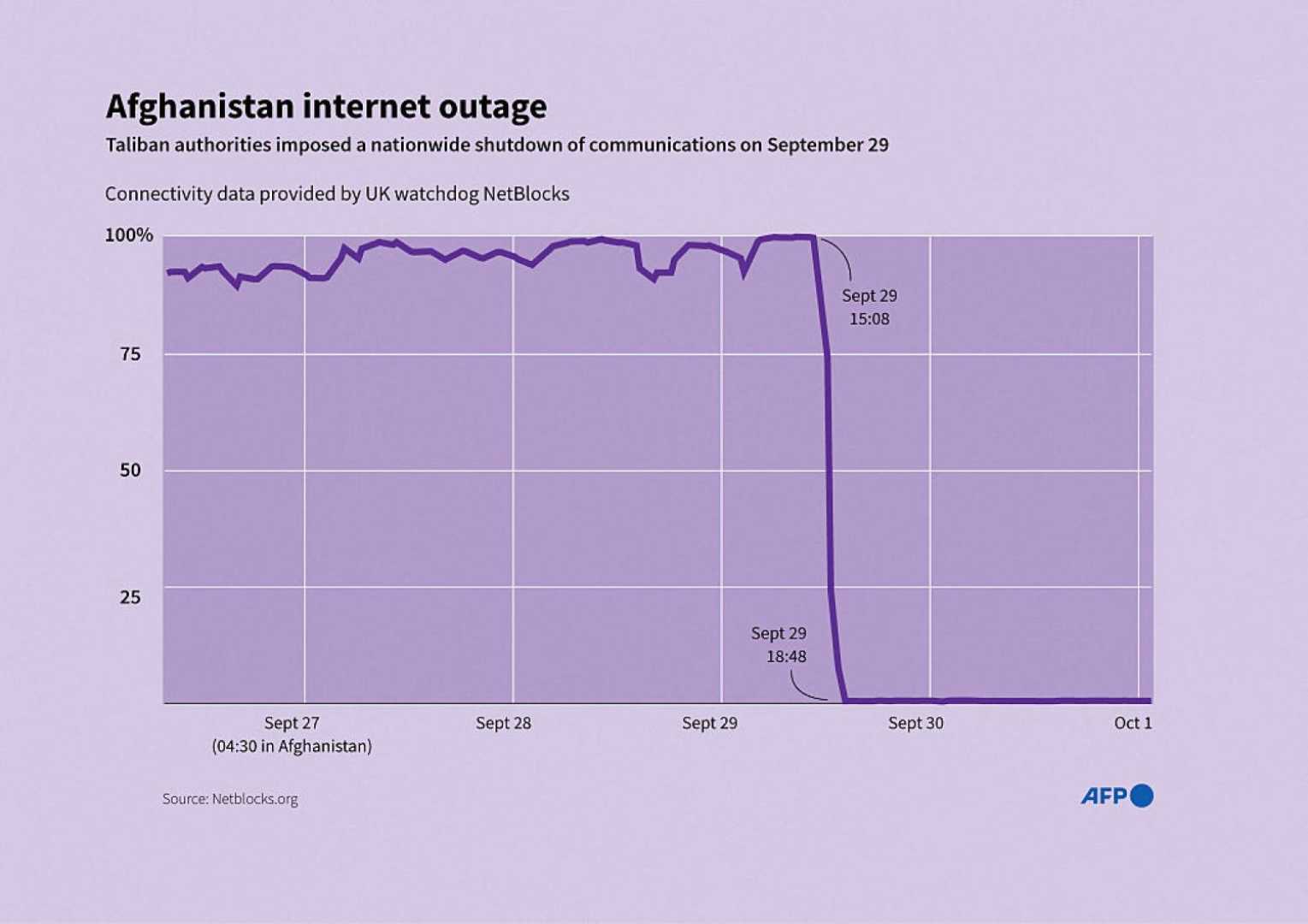World
Taliban Enforces Nationwide Internet Blackout in Afghanistan Amid Crackdown

KABUL, Afghanistan — Afghanistan experienced a nationwide internet blackout on September 29, 2025, as the ruling Taliban sought to cut access as part of a crackdown on what they described as “immoral activities.” This decision has ignited concerns of further isolation for millions living in the country under the Taliban’s regime.
Netblocks, an internet monitoring organization, reported that multiple telecommunications networks and telephone services were disconnected, leading to what it called a “total internet blackout” in the nation of approximately 43 million people.
The United Nations Assistance Mission in Afghanistan (UNAMA) urged Taliban officials to restore internet and telecommunications access, demanding immediate reinstatement of services. Afghans living abroad expressed deep concern over their inability to contact family members within the country.
“From yesterday, there is no communication with a single person,” said Mohammad Hadi, an Afghan residing in India since 2019. “There is no means to talk, to be sure that they are safe or not.” Hadi described a growing sense of panic among Afghans living outside the country.
Local media outlet Tolo News reported severe disruptions to their operations due to the blackout. International news agencies, including The Associated Press and Agence France-Presse, confirmed they had lost contact with their Kabul bureaus.
Sources within the Afghan Embassy confirmed that the government had ordered the internet block and that only limited mobile phone services remained operational. Attempts by CNN to reach Taliban officials for a comment through messaging services were unsuccessful, and no official statement was released by the group.
There were warnings from Taliban officials earlier in September that internet services would be cut to prevent “immoral activities.” Haji Zaid, the governor of northern Balkh province, mentioned plans for an alternative communication system without providing further details about what constituted “immoral activities.” He stated that this order originated from the Taliban’s supreme leader, Mawlawi Haibatullah Akhundzada.
According to UNAMA, disruptions to internet and mobile access began on September 16, escalating to the nationwide blackout on September 29 without prior notification.
Wahida Faizi, an Afghan journalist living in Denmark, shared the personal impact of the blackout. “It has only been a few hours since the internet was cut off in Afghanistan, but for me, it feels like a lifetime has passed,” said Faizi. “Every day after work, my mother and father’s voice brought peace to my heart.”
Human rights activists warned that this blackout could have severe ramifications for Afghans already facing a humanitarian crisis since the Taliban took power in 2021. Many young girls, barred from attending school beyond grade six, have relied on online education from international educators or charities, which is now threatened.
Sabena Chaudhry, communications manager for Women for Afghan Women, noted that the blackout “is not only silencing millions of Afghans but also extinguishing their lifeline to connect with the outside world.” She also mentioned losing contact with staff members in Afghanistan due to the shutdown.
Mariam Solaimankhil, a member of the ousted Afghan government in exile, expressed her dismay over the situation. “The silence online without Afghan voices from inside Afghanistan is deafening,” she posted on X. “My heart hurts – our people are being cut off.”
The Taliban’s leadership has increasingly imposed strict measures, limiting communications and access to information, raising fears of a return to prior strictures. The blackout, described as one of the most extensive telecom shutdowns since the Taliban regained power, underscores the risks faced by Afghans.












